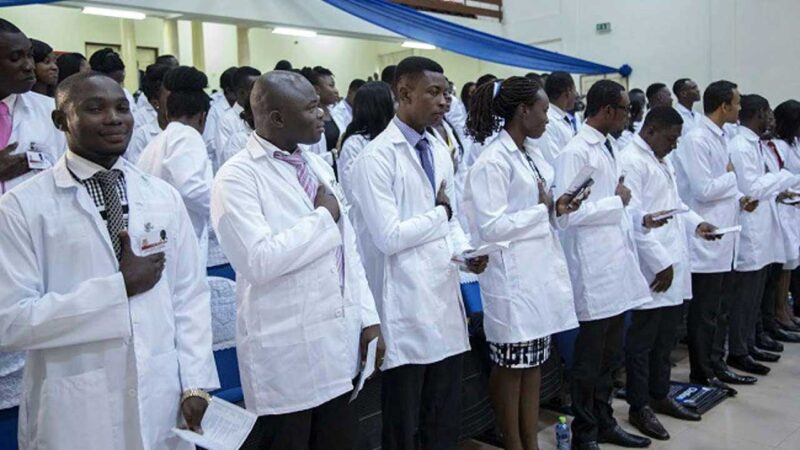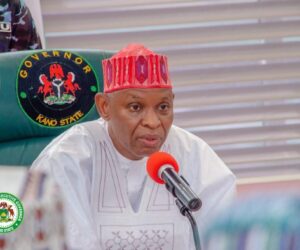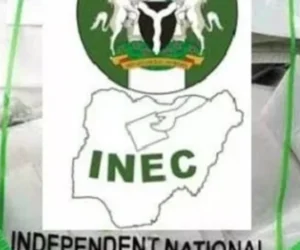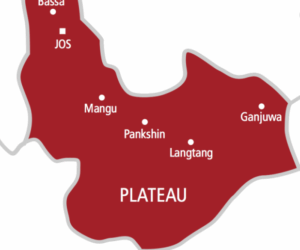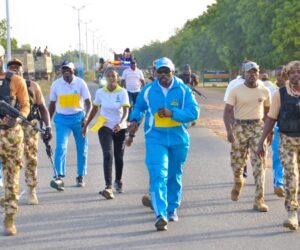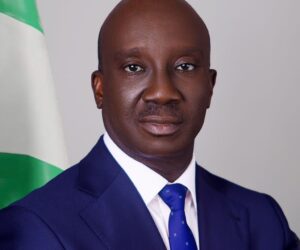…as resident doctors insist on 19-point demands
The federal government is holding a conciliatory meeting with the Nigerian Association of Resident Doctors (NARD) in an effort to end the ongoing indefinite strike by resident doctors, which has now entered its 10th day.
An official at the Federal Ministry of Health and Social Welfare, who requested anonymity, confirmed that the meeting is being jointly led by the Ministries of Labour and Health in Abuja on Monday.
The official expressed cautious optimism that the discussions would result in a positive outcome.
He, however, regretted that despite the payment of arrears to doctors, the strike had persisted.
Last week, the Federal Ministry of Health announced that it had approved and commenced the payment of over ₦33.3 billion in arrears owed to health workers across the country.
Read also: Nigeria’s healthcare crisis needs more than government spending, it needs ingenuity
“With those funds that were disbursed, we had hoped the strike would be called off. What is actually happening?” he queried.
“It calls for human understanding. The minister of State for health had appealed to their conscience. The Federal Government has shown commitment, they should understand. A conciliatory meeting is going on as we speak, led by top officials of the Ministries of Labour and Health, and we hope it would be positive,” he added.
Resident doctors who constitute the bulk of Nigeria’s healthcare workforce had on November 1 commenced a total and indefinite strike, citing the “repeated failure” of the Federal Government to honour its promises and implement previously signed agreements after several rounds of dialogue, appeals, and ultimata.
The strike has crippled healthcare delivery in public hospitals nationwide, disrupting both routine and emergency services. Only skeletal services are being provided by a handful of consultants and house officers, resulting in long waiting times and, in many cases, patients being unable to access care.
Meanwhile, the leadership of NARD insists that its 19-point demand must be fully met before the strike is called off.
Muhammad Sanusi, a resident doctor in the Federal Capital Territory, told BusinessDay that the funds recently disbursed by the government cover only a small fraction of the association’s demands. “The money paid for arrears is not even enough. Our demands go beyond funding; they involve policy issues, and we are not backing down until they are met,” he said.
According to him, the association’s demands are policy issued which includes employment and remuneration for entry-level doctors, upgrading of medical certificates, implementation of a clear policy for replacing doctors who leave the service, and improvements to residency training programmes.
“There are several matters that require policy decisions, not just disbursing money. The money disbursed did not cover all the financial arrears. There’s a minimum set of demands that must be met before we can consider calling off the strike”, he added.
The 19-point demand include: Review of excessive and unregulated work hours; Payment of unpaid 25%/35% salary review arrears under CONMESS; Immediate reinstatement of five resident doctors dismissed from the Federal Teaching Hospital, Lokoja, with full payment of all outstanding salaries and allowances for the period of their disengagement.
Read also: How Nigeria lost public healthcare crown
Payment of promotion arrears; Release of the 2024 accoutrement allowance; Clearing bureaucratic delays in upgrading resident doctors’ ranks; Payment of specialist and professional allowances; Inclusion of house officers in the civil service scheme.
Others are; Correction of all entry-level placements; Progress on the Collective Bargaining Agreement (CBA); Release of corrected professional allowances; Regularisation of all locum staff; Reversal of the downgrading of West African College certificates by the Medical and Dental Council of Nigeria (MDCN); Issuance of certificates by the National Postgraduate Medical College of Nigeria (NPMCN); Granting hospital chief executives greater autonomy to employ and replace doctors;
Tackling brain drain; Urgent upgrade and maintenance of infrastructure and medical equipment; Rejection of non-medical consultant cadres; and implementation of agreed special pension benefits.

